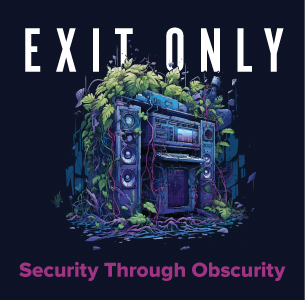Attilio Bruzzone, keyboardist, guitarist, programmer and vocalist, talks Igloo Magazine’s Alex Gibson through some of the guiding principles behind the latest release, their views on modern digital culture and plans for another trilogy.
Italian wide-screen electronica group port-royal recently celebrated ten years in producing their distinctive blend of ambient techno, shoegaze, post-rock and melodic IDM, and to celebrate the milestone n5MD have collected all works that did not initially receive wide releases, reissuing them in an exhaustive double album – 2000-2010: The Golden Age Of Consumerism.
The release is a goldmine for completists…
It includes all of the band’s rarities, compilation appearances and remixes, and collects close to 3 hours of music. Disc One includes the long out of print Kraken EP, tracks from the Magnitogorsk split with Absent Without Leave, the Honvéd EP, the band’s compilation appearances as well as two unreleased tracks. Disc Two marshals all the remixes that the band has completed for other artists, including Felix Da Housecat, Ladytron, Millimetrik, D_rradio, Bitcrush and Jatun amongst others.
The outfit’s intelligent approach towards a fusion of organic and electronic elements is apparent in the complexity of their sound, and their perspective on current culture and the music industry mirrors this; an implied critique asserting a decline in philosophical values is closely aligned to the rampantly escalating consumerism increasingly dominating every aspect of modern society.
Heady stuff; Radiohead tackled it last century with OK Computer, as did literature of the time like Fight Club and No Logo. As the ruthless end stage capitalism of the early 21st century manifests itself in a totally market and sales driven musical culture, port-royal and their evolution in ambient fusion show themselves to be strong exemplars of the postconsumerist heart of cerebral electronic music.
Attilio Bruzzone, keyboardist, guitarist, programmer and vocalist, talks Igloo Magazine’s Alex Gibson through some of the guiding principles behind the latest release, their views on modern digital culture and plans for another trilogy.
:::….:.:::….:::::::..:::::…..::..::::…::::.:.::::..:::…:::….:::.::::.:.::.:::.:::.:::…:::..::…::
Igloo :: Had you wanted to release or re-release all this material for some time?
Bruzzone :: Yes, it was something we had been thinking of for some time; especially due to the fact that all the EPs/songs featured on Disc One of this double album were for a long time sold out and unavailable; many people were asking us to reprint them.
Igloo :: What led to all of this material being put together to come out in this fashion?
Bruzzone :: Simply the fact that it was – let’s say – “minor” stuff, which is rare and no longer available. So 2000-2010: The Golden Age Of Consumerism is not at all a kind of “Best Of,” but simply a retrospective collection of all our rare songs, plus some previously unreleased material. Disc Two features all the remixes we have done for other bands since the beginning of our activity. It’s some kind of nice way to celebrate our decade of activity, collecting in one single release (even if it’s a double album) all the material that was no longer available and “lost” during these 10 years. Last but not least, we are happy that our friend and head of n5MD, Mike Cadoo, agreed to release this album. We really like Mike’s music (Bitcrush, Gridlock) and his activity with n5MD, which has been our home for 2 years so far.
Igloo :: With the unreleased material, it seems like a lot of it is either reminiscent of, or related to, Flares?
Bruzzone :: It’s not completely true: e.g. the first 4 songs of Disc One come pretty earlier, are much shorter and less produced than Flares’ tracks: these first 4 songs were featured in the Kraken EP (2002), our first work to date. The other material – we could say – is mostly related equally to Flares (2005) and Afraid To Dance (2007); then 2 songs, “Electric Tears (Nothing’s Gonna Change)” and “Guenther Anders” are especially related to the Dying In Time (2009) sessions. The only alternate version featured in 2000-2010: The Golden Age Of Consumerism is “Roliga Timmen [2003 version]”, whose original and official version was featured in Afraid To Dance.
In general, according to us, this Disc One is a kind of parallel production of port-royal (more than something related to “x,” “y” or “z” album), and not at all a kind of “Best Of” as some people are wrongly writing on the Internet: it’s a kind of more relaxed material we were conceiving over the years (not by chance was it released as EP’s and compilation tracks). It was important to us to collect those “lost tracks” and feature them in one single release, especially now after 10 years of activity and the new direction we intend to give to port-royal production.
Igloo :: Was Flares something that took a long time to put together? Did you work on it for an extended period, or did it come together quickly?
Bruzzone :: Yes, Flares, our first LP, was a big effort and it took us almost 3 years before we completed it. It’s a very long and overwhelming album (almost 78 minutes) with many faces. We worked on Flares since February 2002 (just after we were done with the Kraken EP) till November 2004. Of course during this long period we took also some breaks in order to listen carefully to what we had recorded and to think better over what we had produced so far. I can say those breaks (in which we also recorded some of the songs featured in this retrospective release) were essential to us: without them most likely you would have listened to a different product, more unripe and less deep. Time is an essential factor in our way of working; it allowed us to give songs their final structure and ultimate shape, which satisfy us even nowadays.
Igloo :: What is the new direction in port-royal production you mentioned? Is there new material you’ve been working on?
Bruzzone :: We don’t know yet exactly where are we heading right now; to reply to your question, we just started very recently to produce new material. What we know for sure is that with Dying In Time (2009) we ended a kind of trilogy started with Flares (2005) and developed further with Afraid To Dance (2007). So it’s time to start a new trilogy in the new decade. But – as I said above – it’s too early to say what this will be precisely. For sure we will keep the main port-royal elements, a kind of trademark; and at the same time we might be turning to be more experimental, using less reverb, less layers of sound… Who knows now what’s coming in the future.
Igloo :: The trilogy idea is interesting – how do you feel your sound evolved over the course of those three records? Do you feel as though your approach has changed?
Bruzzone :: One more word about the trilogy: we never planned to make a kind of trilogy when we started recording Flares. It simply happened – naturally and spontaneously, without any intention or force lying beneath.
I think the sound evolved pretty much: e.g. take Flares and then Dying In Time (essential in this regard was the change of direction already operating with Afraid To Dance) and you will have 2 different genres. Even though I think at the same time we can see clearly that there is something connecting these 3 albums: we see this connection in the fluid approach to music, which is free from any boundary and like the whirling water, it crosses the shores of a particular genre to dive in another river/genre and so on. Then all these albums show clearly a preference to multi-layered songs, which are pretty much articulated, over structured and long lasting. And we could go on this way seeing what ties to each other our first 3 albums. The essential evolution from Flares to the other 2 albums was that in the first release we still had something that could have somehow connected us to a kind of post-rock-ish musical experimentation (even though I am not referring at all to the post-rock of bands like Explosions In The Sky, Caspian, etc.), while in the next 2 albums this even small connection had been cut. At the same time we are not even completely an electronic band… It’s a kind of borderline music where it’s impossible to state or name a leading genre: all the genres we are somehow connected to (shoegaze, dance, trance, ambient, electronica, minimal techno, post-rock) are interdependent and influence each other in a circle where it’s hard to say which is the main genre…
If we want to talk about the approach to music, then I could tell you it didn’t change that much. That’s the substance that glues and keeps together many formal aspects that have changed in these 10 years. Technically of course many things have changed, but the main approach is pretty much the same as when we started.
Igloo :: Who or what influenced you when you started, and how has that changed?
Bruzzone :: The main influence was life itself, even if this may sound generic and banal. The everyday feelings, impressions, joy, despair, longing – in one word, existence in general played a significant role in our music. Another consistent influence is represented by philosophy, my other activity together with music. Speaking about the bands who influenced us, I could mention you basically 4 of them which meant a lot to us: Autechre (especially their production from 1993 through 1998), Labradford, Arab Strap (1996-1999) and the very early Mogwai (1996-1997). Of course we also loved and love many other bands, but for sure they didn’t represent such an impulse and influence as the 4 aforementioned.
Time is an essential factor in our way of working; it allowed us to give songs their final structure and ultimate shape, which satisfy us even nowadays.
Igloo :: What influences you now?
Bruzzone :: What influences us now is basically what we read, we feel, we love, we see, we suffer for, we struggle for, etc. Surely we never had again such a crush on music artists as the one we used to have with the aforementioned bands. This is easily explainable: by that time we were younger, easier to get impressed, there was also less music than now and we hadn’t started our own project.
Trust me that when you record an album intensively and you are stressed with it, then your will to listen to others music will surely be weaker than when you are only a listener. It’s really different to see and live the “game” from outside and being part of it from an inner perspective. At least this was and is valid for us. Anyway, there are still plenty of projects/bands/artists nowadays that we like.
Igloo :: On that note – on your site recently there was some discussion of your point of view on MP3’s, how they affect the listener and the music industry in general – have you changed your mind regarding this, or do you feel the same way?
Bruzzone :: The point is that music is a kind of product, which doesn’t need any specific nor special material support: if I listen to a song as a CD track or as an MP3 file, it is more or less the same. This seems to be our present and what’s going to happen even more clearly in the future regarding music reception and consuming: only very few people will keep on buying CD’s, vinyl, etc., just the old school geeks and/or fetishists (and we probably could be mentioned among such people!).
The future is going to be completely dematerialized, maybe because in the end there is no more future and just an eternal present, which devours and consumes quickly all its products and creatures. In general things are getting day by day more and more virtual… Even sex is becoming something dematerialized and virtual, like sentiments that seem to be more real when they are virtual than when they are real, so much that they happen to better explode and break free in the so-called “virtual reality.”
Music was a kind of old-timer: it just has brought forward this general trend making it even clearer.
Igloo :: How do you feel digital music changed things?
Bruzzone :: An issue regarding music downloading could be the debated one linked to the urge or the possibility to establish some rules about it. Is it necessary to state some rules? Is it right? Or even better: is that possible nowadays? Once (until 15 years ago, not a century ago) you could have copied your CD into a tape cassette that you could have given to your close friends. That was it: no aftermath, no big deal. Now the same act implies the sharing of that CD with millions of people and not a small circle of friends who, more easily and likely than now, might have been buying the aforementioned hypothetical CD. In this case the entity of the effect is pretty much different…
Times have changed and stating in general what is the cause and what is the effect is a pretty hard task. Then is it right that YouTube, for instance, gets rich through commercial advertising, when the companies buy its virtual space just because of the contents produced, conceived, and created by all who are hosted (for free) and who don’t even get a single cent for it? It’s not easy to respond properly to such questions, and it is even harder trying to understand how to limit – in case of will – these phenomena.
The music education of the final consumer is probably an essential factor in order to reply to that Hamlet’s dilemma (right or not right…? X or Y? Etc.). In this regard we can state that for sure all this getting digital, immaterial, immediately available, beyond the copyright problem (which is the least problem to us), implies at the same time the ultimate triumph of superficiality, of hype at any cost, of any need of exposure, of immediateness (“I want it right now,” “Just do it [now]). But all this stuff stands for the final victory of the disposable way of life so encouraged by the God-Consumerism, which rules our economies and lives till the inmost recesses of anybody’s heart.
It’s getting more and more difficult to really feel the music and drown in it with passion, but it’s easier to listen to everything knowing it in a shallow way. We think this the final result of the “Mp3 Revolution,” which is symbolic of our times: in the beginning it was something great, a symbol of freedom, of destruction of any border, of infinite possibilities, afterward the flag of any smallest consumerist low instinct, of the “nothing new under the sun,” the trap that shows well the complete lack of freedom and the betrayal of the desires hidden in any apparent overcoming of all limits. A time without limits, where everything is possible, doesn’t exist. If it claims to be such, it just means it is itself limit and impossibility. Isn’t it our time?
Igloo :: I’m interested in how you view mention consumerism in relation to music, as referenced in the album title. Does that indicate disillusionment with the music industry in general? How do you view the rest of the industry in relation to your label n5MD? How were your experiences with it prior to that?
Bruzzone :: Yes, that definitely indicates disillusionment with the music industry in general (and with our times in a more general standpoint), but of course there are the typical exceptions proving the rule: n5MD is one of them. A musician himself ù Mike Cadoo aka Bitcrush — a person who really has a true passion for music, runs our label; so it is managed and administrated with a sort a human touch and a correct approach to what he releases. At the same time the way of managing the label is utterly professional and serious, since this is not a hobby to our man, but a true passion and – I suppose – his main activity in order to make a living out of it. We could say that in this regard we have always been lucky, since we could say the same about our previous experiences with music labels as well (i.e. Chat Blanc Records, Resonant, Sound In Silence, etc.). UK based Resonant Recordings is the best example: it was run by two nice blokes, Andy Slocombe & Andy Smith, and we released with them 3 albums, before they quit with the label activity. The main difference between them and Mike is that the British guys saw the label just as a passion, but not as a business activity in the long term. That’s it.
The future is going to be completely dematerialized, maybe because in the end there is no more future and just an eternal present, which devours and consumes quickly all its products and creatures. In general things are getting day by day more and more virtual…
I’m sure there are some pretty similar labels as n5MD and I am glad it is like that because it’s these people who keep on offering good music, looking not only at the business aspect but also and especially at the quality of what they put out. What is sad is that many of such labels cannot go on properly with their work just due to the tyranny of money, and so plenty had to quit their activity lately. It’s a world where it’s pretty hard to combine quality and passion with profit. The line which separates money and art is very thin and dangerous and/or it’s like the Berlin Wall: in general, how this line is crossed depends on the destiny of art. Usually huge profits always corrupt all of what they are related to. Art and money have always had a kind of troubled relationship, so much that maybe we could even dare to say they are a contradiction in terms! In this regard I wrote some time ago an article against Andy Warhol and the so-called “Pop Art,” but not with a priggish attitude, simply under the shadow of a general disenchantment.
I know well that many people who criticize the system in the end are just sanctimonious pricks not that different from what they attack. What I want to underline here is simply that sometimes it’s not possible to keep together two things which exclude each other: that’s realism. And that’s why I criticized the Pop Art: it wanted to keep together money and art just to cynically justify the total prostitution and commodification of art that they’ve operated at the altar of God-Money. Of course it’s the dream of any artist (us included!) to be able to live out of his artistic activity (nothing bad with it!), but a pretty different issue is when huge quantities of money take the field: in this case it’s obvious that art becomes just business where there is no more trace of the ancient and original passion. So it’s okay that an artist accepts money for his works, but when he cares only about money it means he is not doing art anymore.
We see music (and art in general) as a form of resistance, a kind of Utopia that underlining the negative, the misery and the sadness of the world at the same time represents the urge of the positive in its temporary denial: through the absence and its lack the light breaks through and shines reflections in the longing for it. This is art: hope, temporary absence, wait, longing and resistance. In the end there is nowadays more presence in the absence than in all that is immediately available: absence preserves things intact and pure. And then isn’t it true that hope dies last?
Igloo :: True. So where would you hope to see the future of music go?
Bruzzone :: It’s always easier to say what we don’t like and what we don’t want than stating what could be better, what we wish to happen. In other words, recognizing what’s wrong is always an easier task than trying and building what we think is right. But at the same time it’s pretty obvious the construction of the positive and the fight for it passes through the destruction of the negative and through it, as Hegel taught…
Anyway we hope in the future (which is more and more a kind of eternal present than a proper future) music could be still able to keep a kind of human touch: it’s really scary if we think that music soon could be something like the updates of a computer: they expire quite soon, since they are just a matter of technical progress (which moves forward very fast), where there is no more room for the human being, that is un-updated and unnecessary. In this regard we also hope music could keep the right balance between form and substance, which is essential to any piece of art: the dream of any artist is to win the battle against time in order to live forever through his works beyond the oblivion that affects everything. I see now a clear domination of form over substance, which is of course another symbol of our times, as many philosophers and sociologists clearly pointed out: everything must be consumed quickly so that people can consume something else and so on. This vicious circle cannot be broken; otherwise planet Earth would stop spinning around the Sun (Consumerism). The form gets old pretty soon, while the substance is what survives through the erosion of time…
This is why now it’s also necessary to the global system having only (or mostly) formal “artistic” products and that’s why time clicks so fast (when it actually stands still): a new star will be born on the ashes and the corpse of the yesterday-celebrated idol (and note that the system creates many new fields of worship, since plenty of idols are necessary to it: teen idol, indie idol, culture idol etc.): now the aim of most music is to live like a butterfly, just the sufficient time to fly till the heights of the stars and smelling the heady taste of success to then die forgotten and forsaken in a bleak and stinky cage. The few moments of success are definitely worth this price… Again the 15 minutes of Andy Warhol.
Igloo :: So where would you like to see port-royal go? What are your immediate goals?
Bruzzone :: I see port-royal going on in the same direction we took 10 years ago: making good music with passion, in the best way we are able to, and with freedom; hoping to touch as many hearts as possible. This was and is our goal: enjoying this activity, learning everyday how to do it better and sharing with people this genuine passion for music, which is what really connects and bonds human beings, letting them feel less alone and abandoned in the struggle finding a small place under the sun.
Sometimes what’s apparently unnecessary is much more necessary than all the things we wrongly believe essential to our lives.
:::….:.:::….:::::::..:::::…..::..::::…::::.:.::::..:::…:::….:::.::::.:.::.:::.:::.:::…:::..::…::
Modern music that makes you think, 2000-2010: The Golden Age Of Consumerism is out now on n5MD and available as a double CD or digital download. [Listen | Purchase]






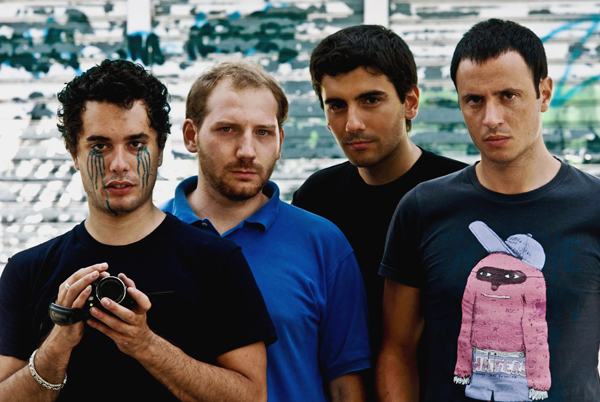



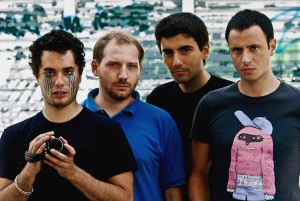
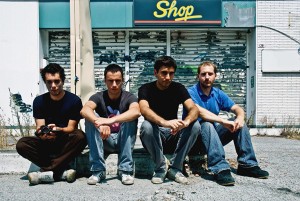

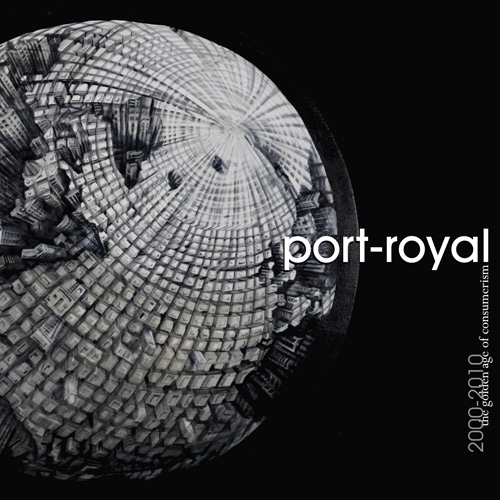

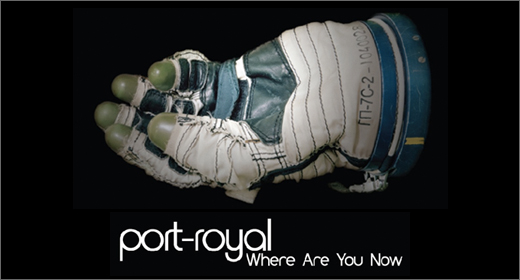
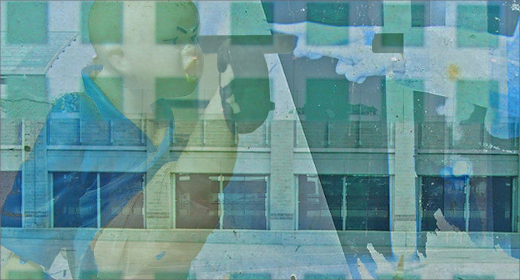
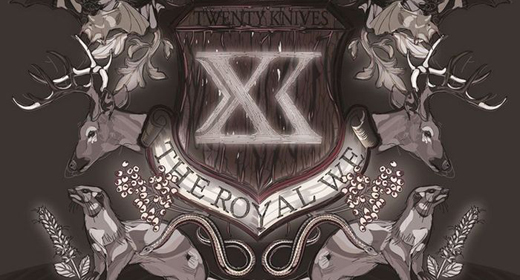

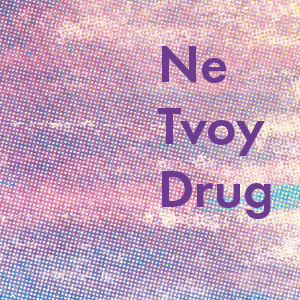







![V/A :: Errormatic Vol.4 [The Collective] (Clean Error)](https://igloomag.com/wp/wp-content/uploads/2024/12/errormatic-v4_feat-75x75.jpg)

